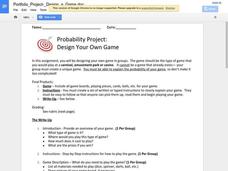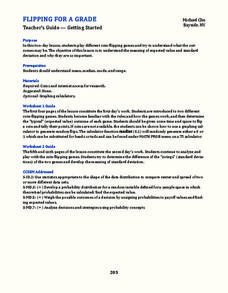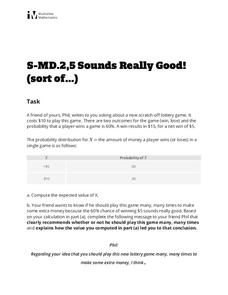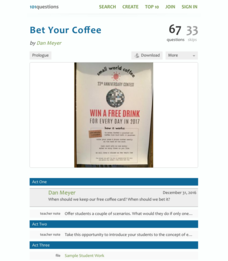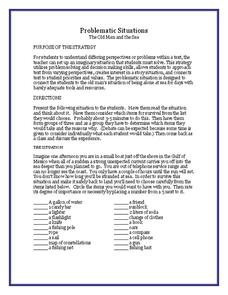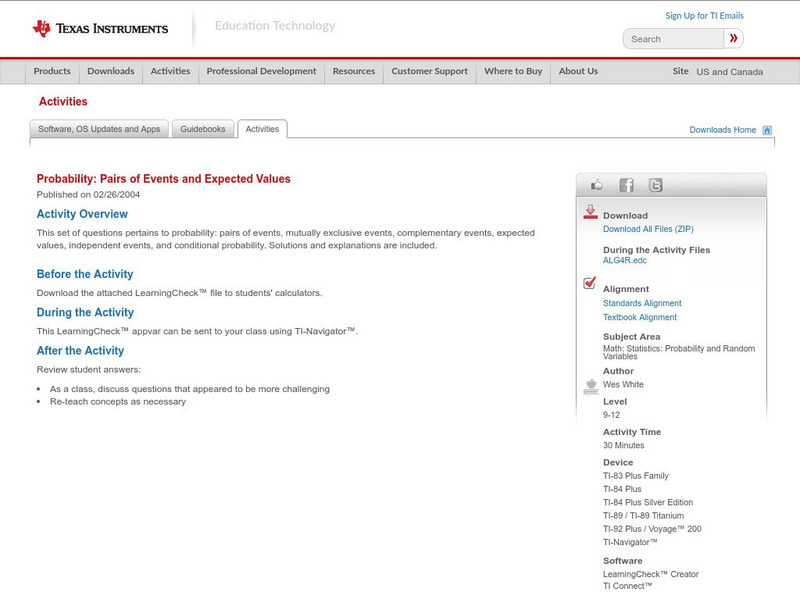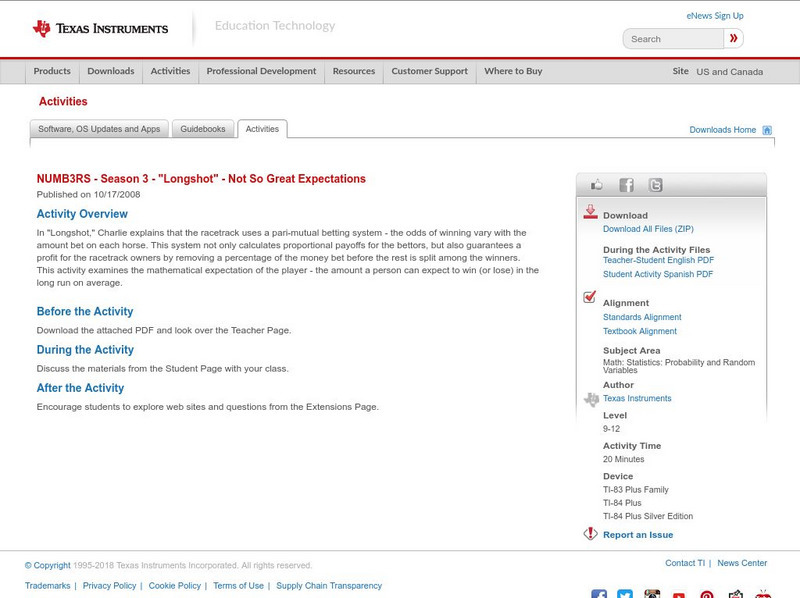Google
Probability Project: Design Your Own Game
Designing a game is the focus of this probability lesson. Groups develop and build a unique game, including directions for how to play, a calculation of the expected value of winning, and a personal reflection. The plan provides a...
Curated OER
Flipping for a Grade
What happens when your teachers get tired of grading tests and want to use games of chance to determine your grade? How would you decide which game they should play? Learn how to use expected value and standard notation to compare two...
101 Questions
Money Duck
A video presentation shows duck-shaped soap that has a $1, $5, $10, $20, or $50 bill in its center. Learners consider different population distribution of the bills to determine a reasonable price for the duck.
Illustrative Mathematics
Rolling Dice
Rolling dice is a great way for your mathematicians to get a hands-on approach to probabilities. Use the chart to record whether they rolled a six during ten attempts. Calculate results individually (or in small groups) and then record...
Curated OER
Fred's Fun Factory
Round and round and round she goes. Where she stops, nobody knows. This activity uses a common arcade game of chance, the spinning wheel, as a platform for computing expected values, interpreting results, and applying this knowledge to...
Curated OER
Bob's Bagel Shop
How much money can Bob expect to make per customer by selling bagels? This short expected value problem can be used as a warm up or a quick assessment at the end of a more detailed lesson. Teacher commentary includes the solution to the...
Curated OER
Sounds Really Good! (sort of...)
Your friend Phil wants to know if he should play the lottery. Have your class use the given data to compute the expected value and explain to Phil what he should do and why. This handout is ideal for a quick assessment of skill and...
Illustrative Mathematics
Accuracy of Carbon 14 Dating II
The scientific issue of carbon-14 dating and exponential decay gets a statistics-based treatment in this problem. The class starts with a basic investigation of carbon content, but then branches out to questions of accuracy and...
101 Questions
Bet Your Coffee
Coffee drinkers, rejoice, here's a chance to win free coffee! Coffee club card holders have the chance to win free coffee every day for a year—but they must enter using their cards good for a free cup. Scholars weigh the chances of...
Curated OER
Math Games for Skills and Concepts
A 27-page packet full of math games and activities builds on algebra, measurement, geometry, fractional, and graphing skills. Young mathematicians participate in math games collaboratively, promoting teamwork and skills practice.
Curated OER
The Old Man and the Sea: Problematic Situations
Bring the drama of Ernest Hemingway's The Old Man and the Sea to class with a fun role-playing activity. Given a list of survival items, readers decide which items would be the most necessary for an adventure like...
Texas Instruments
Texas Instruments: Probability: Pairs of Events and Expected Values
This set of questions pertains to probability: pairs of events, mutually exclusive events, complementary events, expected values, independent events, and conditional probability. Solutions and explanations are included.
Texas Instruments
Texas Instruments: Numb3 Rs: Not So Great Expectations
Based off of the hit television show NUMB3RS, this lesson exposes students to the concept of expected values (or expected outcomes). The method for computing the expectation is explained, and then many examples are given for students to...
Stefan Warner and Steven R. Costenoble
Finite Mathematics & Applied Calculus: Histogram and Probability Distribution Generator
The learning tool displays data in the form of a histogram. The tool also shows descriptive statistics and probability distributions. Examples of data are included.
